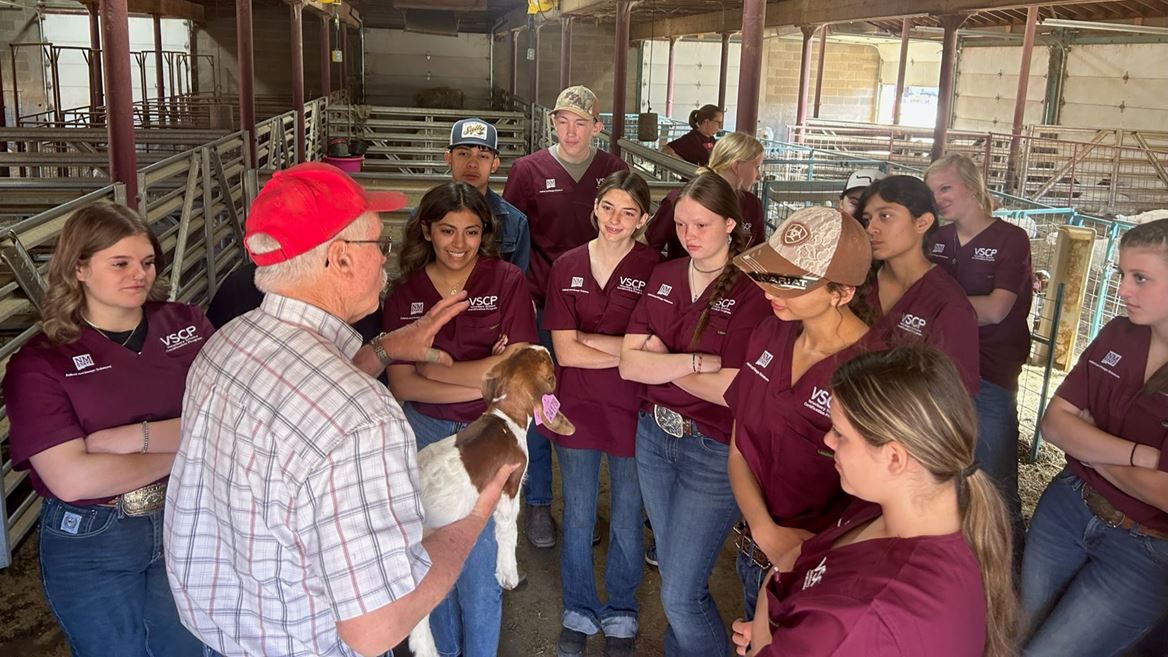Participants in the vet science camp at New Mexico State University listen to Extension Veterinarian Dr. John Wenzel during a presentation. (Courtesy photo)
Source: NMSU News Release
DATE: June 14, 2024
WRITER: Tiffany Acosta, 575-646-3929, tfrank@nmsu.edu
For three days in May, 20 students from New Mexico and the surrounding region had the chance to travel to Las Cruces and learn about veterinary medicine and animal science at an overnight summer camp at New Mexico State University.
For the second consecutive year, NMSU’s Cooperative Extension Service in the College of Agricultural, Consumer and Environmental Sciences hosted a hands-on animal experience that allowed 8th through 12th graders to explore career opportunities and tour facilities. In 2023, NMSU hosted a pair of camps.
“This camp is very intense and gives the participants an opportunity to work with and handle animals that they may have never had the chance to interact with,” said Shanna Ivey, animal and range sciences and Extension animal sciences and natural resources department head and professor. “I hope the students take away an appreciation for veterinary medicine with food animals and horses. They hopefully gained skills that will be useful in preventing disease and treating wounds.”
“This is a well-rounded camp that exposes students to a wide variety of work associated with veterinary care and nutrition for production livestock and equine,” said Eric Scholljegerdes, animal and range sciences professor.
“We had the opportunity to expose the students to some very different experiences, such as watching tissue being collected on research sheep in Dr. Ryan Ashley’s lab, breeding soundness exams on bulls and vaccinating baby goats,” Extension Veterinarian Dr. John Wenzel said.
Participants gained experience with multiple species and areas. They were given reusable kits to practice suturing, which they could continue at home.
“For our area, we hope they see that veterinary medicine is not just prescribing drugs and taking vitals, rather it is a combination of nutrition, physical fitness (animal structure), genetics and environment,” Scholljegerdes said. “In combination, they will be able to accurately assess the health status of the animal and identify any underlying causes of illness.”
“The camp exposes the campers to careers related to veterinary medicine as well, such as degrees in reproductive physiology, animal sciences, research opportunities and others that allow them to stay close to animals, but not necessarily with a doctorate of veterinary medicine,” Wenzel said.







![Shopping Cart Ordinance Among Most Read Stories in 2024 [#10]](https://lascrucesdigest.com/wp-content/uploads/2024/10/d4232c98-4af6-9a7d-cda9-ccc2add08ae6.jpg)